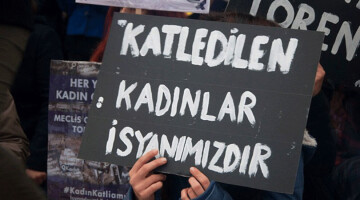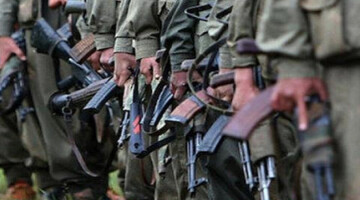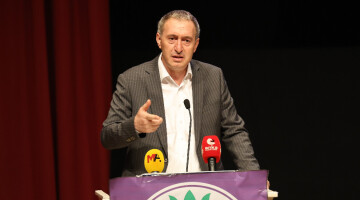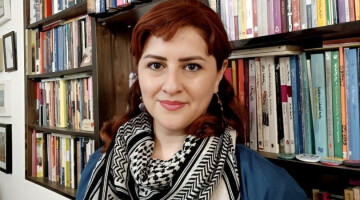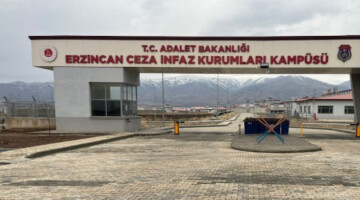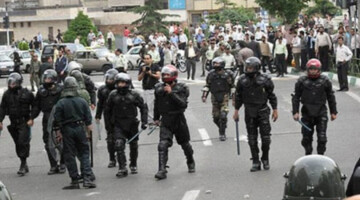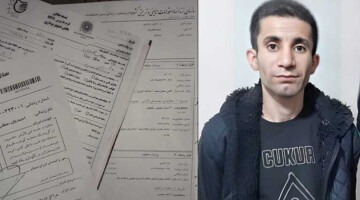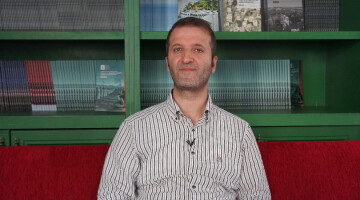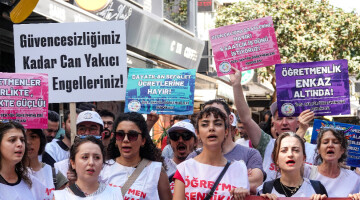Human Rights Association (IHD) Co-Chair lawyer Öztürk Türkdoğan spoke to ANF about the state's handling of the body of HPG fighter Mahsum Aslan, who died in Dersim in 2018. The remains have been sent by post from the Erzincan Chief Public Prosecutor’s Office to the Police Station in Ergani district, the residence of his family.
Türkdoğan stated that article 130 of the Turkish Penal Code stipulates "the right to respect one's memory" and disrespect is defined as a crime. “You have to respect the mortal remains of a person because under our law, when a person dies, her/his case is closed. When one dies, everything is over. And the law relies on an equality principle. The person who dies has a circle of relatives; she/he has a place in society. You have to put aside that person's political, ethnic identity and political stance. You have to respect her/his memory. According to the Turkish Penal Code (TCK), cemeteries must be protected, bodily integrity must remain intact, and respect for the bodies must be secured.”
'EVERY SOCIETY HAS A LEVEL OF TOLERANCE'
Türkdoğan emphasized that every society has a certain level of tolerance, and it is necessary to act in accordance with the religious values of society. “You have to deliver the body to the family by transport. You cannot send it by cargo because it is not an object. If you do that, it means that it is direct discrimination and humiliation. In fact, this is hatred.”
“Whatever your affiliation, belief, identity, you have to treat a person who lost her/his life the same way you would treat a person who thinks like you. If you do not respect the memory of the deceased, if you consider it as an object and engage in an act that disrespects the family, it will mean that you handled it with a motive of hatred. Because humiliation is also a motive of hatred. Discrimination is prohibited within the law,” Türkdoğan maintained.
'HATE IS MOTIVE'
The lawyer continued: “There is a special report by the IHD regarding the delivery of more than 260 bodies exhumed from a cemetery in the rural area of Bitlis-Tatvan Yukarıölek village to the Forensic Medicine Institute in Istanbul. We warned the Ministry of Justice and the Ministry of Interior about this matter. We also filed a criminal complaint against the officials who carried out this operation. Yet, they closed the file. This is a practice contrary to the current legislation and is unacceptable. Burying dead bodies on the pavement in boxes in a cemetery of the nameless is already against the regulations regarding cemeteries. Hate is a motive here,” he said.
'GOVERNMENT SHOULD BE WARNED'
Türkdoğan warned that such practices would lead to malign consequences. “You cannot deliver the bodies of the Kurdish people by post in this way. These people have a consciousness, and they have ethical, moral and religious values. The Kurdish people are aware of this discrimination against them. This only fuels hatred. The government should not allow such things. It is necessary to open an investigation against the state officials who do this,” Türkdoğan noted.
The IHD Co-Chair remarked that the family who receives mortal remains in this way should make an application to the Human Rights and Equality Institution of Turkey and file a criminal complaint against the officials. The government should also be warned so that such things would not happen again, he added.
BACKGROUND
Mahsum Aslan, whose nom de guerre was Firaz Paramaz, was martyred in a Turkish air strike in the province of Dersim on June 2, 2018. Only a few weeks later, his family living in Ergani district of Amed was ordered by the responsible authorities to provide a DNA sample. The authorities took a full three years to conduct a comparison. It was not until July that the parents of the fallen fighter were informed that the results of the DNA analysis were available. They then went to the public prosecutor's office to receive the remains of Mahsum Aslan. There, however, it was said that the authorities would take care of the handover themselves.
On August 2, the Aslan family finally received a telephone call from the Turkish police authorities in Ergani asking them to collect their son's remains. At the police station in the district, Mahsum Aslan's parents found that their son’s bones had been handed over in a box by the Erzincan prosecutor's office via postal delivery. The relatives were prohibited from informing the public about the burial. The burial in the village of Yayvantepe, therefore, had to be carried out in the darkness of night.
The Turkish authorities' handling of Mahsum Aslan's remains brings back memories of the case of Agit Ipek. His body was also delivered to the family in a box sent by mail. The fighter's mother was only allowed to receive the bones in exchange for a payment of 45 lira. Charges against the responsible judicial authority remained inconsequential as authorities claimed that the act of the responsible public prosecutor's office did not constitute a criminal offense.
RELATED NEWS:


